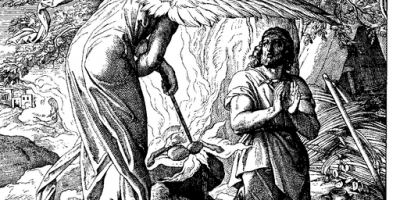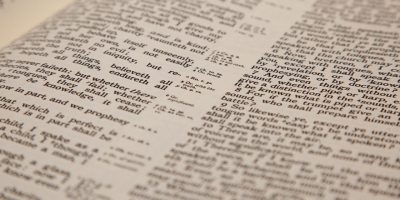The Book of
Isaiah
The Book of Isaiah
The following are summaries and outlines for
the book of Isaiah

Book of Isaiah Summary
The book of Isaiah reveals God’s judgment and salvation. God is “holy, holy, holy” (Isaiah 6:3), and therefore He cannot allow sin to go unpunished (Isaiah 1:2; 2:11-20; 5:30; 34:1-2; 42:25). Isaiah portrays God’s oncoming judgment as a “consuming fire” (Isaiah 1:31; 30:33). More than any other book in the Old Testament, Isaiah focuses on the salvation that will come through the Messiah. The Messiah will one day rule in justice and righteousness (Isaiah 9:7; 32:1). [Source: https://www.gotquestions.org/Book-of-Jeremiah.html]

Title
The book was named after the Prophet Isaiah. He was primarily called to prophesy to the Kingdom of Judah. Judah was going through times of revival and times of rebellion. Judah was threatened with destruction by Assyria and Egypt, but was spared because of God’s mercy. Isaiah proclaimed a message of repentance from sin and hopeful expectation of God’s deliverance in the future.C

Author and Date of Writing
Isaiah 1:1 identifies the author of the book of Isaiah as the Prophet Isaiah.
Date of Writing: The book of Isaiah was written between 739 and 681 B.C
[Source: https://www.gotquestions.org/Book-of-Jeremiah.html]
Isaiah Outline
I. Prophetic condemnation 1:1—35:10
A. Prophecies against Judah and Jerusalem 1:1—12:6
- Coming judgment and blessing 1:1—5:30
- Condemnation of Judah, Isaiah 1:1–31
- Cleansing of Zion, Isaiah 2:1—4:6
- Charge against Israe, Isaiahl 5:1–30
- Calling of Isaiah 6:1–13
- His confrontation, Isaiah 6:1–4
- His confession, Isaiah 6:5
- His consecration, Isaiah 6:6, 7
- His call, Isaiah 6:8
- His commission, Isaiah 6:9–13
- Coming of Immanuel 7:1—12:6
- His miraculous birth, Isaiah 7:1–25
- His magnificent land, Isaiah 8:1—10:34
- His millennial reign, Isaiah 11:1—12:6
B. Prophecies against the nations 13:1—23:18
- Concerning Babylon, Isaiah 13:1—14:32
- Concerning Moab, Isaiah 15:1—16:14
- Concerning Damascus (Syria), Isaiah 17:1–14
- Concerning Ethiopia, Isaiah 18:1–7
- Concerning Egypt, Isaiah 19:1—20:6
- Concerning the desert (Babylon), Isaiah 21:1–10
- Concerning Edom, Isaiah 21:11, 12
- Concerning Arabia, Isaiah 21:13–17
- Concerning the valley of vision (Jerusalem), Isaiah 22:1–25
- Concerning Tyre (Phoenicia), Isaiah 23:1–18
C. Predictions of the Great Tribulation and millennial Kingdom (I) 24:1—27:13
- Tragedies of the Tribulation period, Isaiah 24:1–23
- Triumphs of the kingdom age, Isaiah 25:1—27:13
D. Perilous woes upon Israel and Judah 28:1—33:24
- Woe to Ephraim (Israel), Isaiah 28:1–29
- Woe to Ariel (Jerusalem), Isaiah 29:1–24
- Woe to rebellious children, Isaiah (Judah) 30:1–33
- Woe to compromisers, Isaiah 31:1—32:20
- Woe to the spoilers (invaders), Isaiah 33:1–24
E. Predictions of the Great Tribulation and millennial Kingdom (II) 34:1—35:10
- Bitterness of the Tribulation period, Isaiah 34:1–17
- Blessings of the kingdom age, Isaiah 35:1–10
II. Historic consideration 36:1—39:8
- Looking back to the Assyrian invasion 36:1—37:38
- Hezekiah’s trouble: Sennacherib, Isaiah 36:1–22
- Hezekiah’s triumph: Angel of the Lord, Isaiah 37:1–38
- Looking ahead to the Babylonian captivity 38:1—39:8
- Hezekiah’s sickness and prayer, Isaiah 38:1–22
- Hezekiah’s sin of pride, Isaiah 39:1–8
III. Prophetic consolation 40:1—66:24
- Purpose of peace 40:1—48:22
- Proclamation of the Comforter 40:1—41:29
- Promise of the Servant 42:1—45:25
- Prophecy of deliverance 46:1—48:22
- Prince of Peace 49:1—57:21
- His calling 49:1—50:11
- His compassion 51:1—53:12
- His consolation 54:1—55:13
- His condemnation 56:1—57:21
- Program of peace 58:1—66:24
- Conditions for peace 58:1—59:21
- Character of peace 60:1—62:12
- Consummation of peace 63:1—66:24